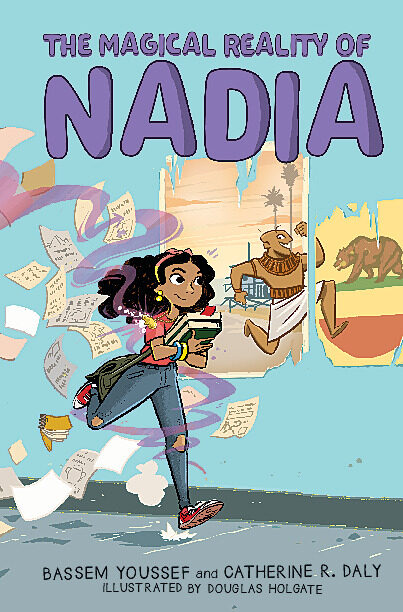Umm Kulthum: The Star of the East
by Rhonda Roumani; illustrated by Ahmed Abdelmohsen
Interlink Publishing Group Inc/Simon & Schuster 
A picture book about the life and career of an unforgettable Arab icon, Umm Kulthum, the most powerful voice in the Arab world.
Umm Kulthum was an iconic Arab singer whose powerful voice captivated the region for over five decades. Admired by the likes of Maria Callas, Bob Dylan, Robert Plant, and Bono, she became a symbol of cultural pride.
Born to a poor village sheikh in Egypt, she defied social norms of her time, convincing her parents to send her to school to learn to read and recite the Qur’an. Disguised as a boy, she toured the countryside with her father, singing at religious events until her voice could no longer be hidden, earning her early fame.
Determined to succeed, Umm Kulthum moved to Cairo, where she overcame initial ridicule to become a celebrated artist. She collaborated with Egypt’s top poets and musicians, mastering her craft and mesmerizing audiences with her long, soulful performances. Her perfect pronunciation and deep connection to the Arabic language endeared her to millions, earning her titles like “The Lady,” “Egypt’s Fourth Pyramid,” ‘The Mother of Arabs”, and “The Star of the East.”
This trailblazing story is told for children for the first time by award-winning author, Rhonda Roumani in collaboration with Egyptian illustrator Ahmed Abdelmohsen.
Cover image and summary via Edelweiss
 The Night Before Eid : A Muslim Family Story
The Night Before Eid : A Muslim Family Story





 The Magical Reality of Nadia by Bassem Youssef and Catherine R. Daly
The Magical Reality of Nadia by Bassem Youssef and Catherine R. Daly